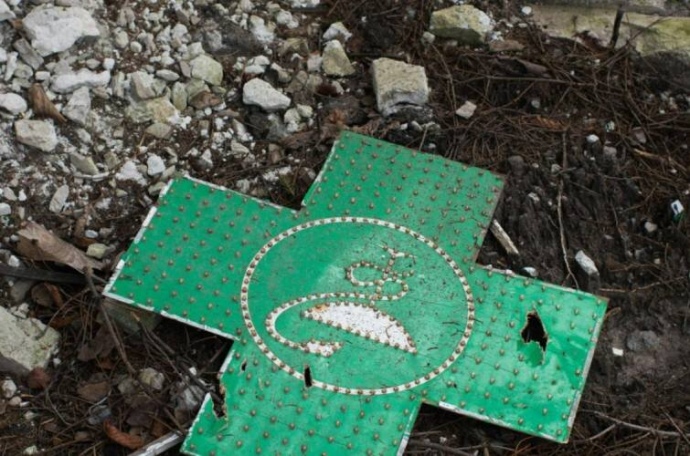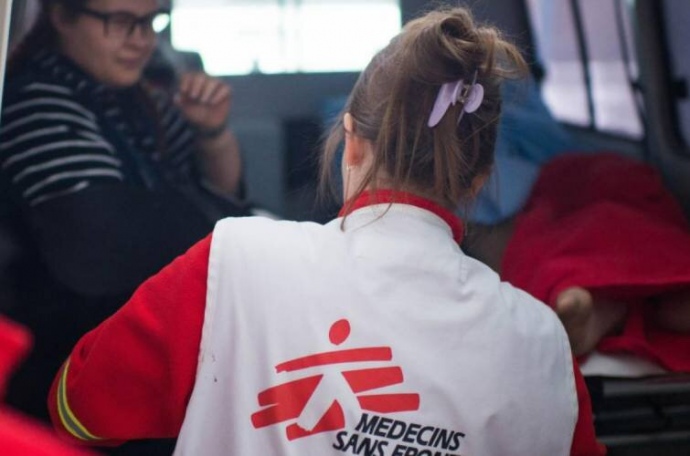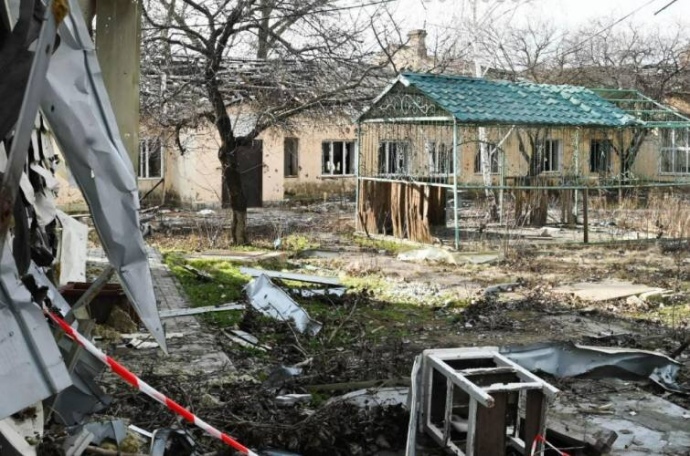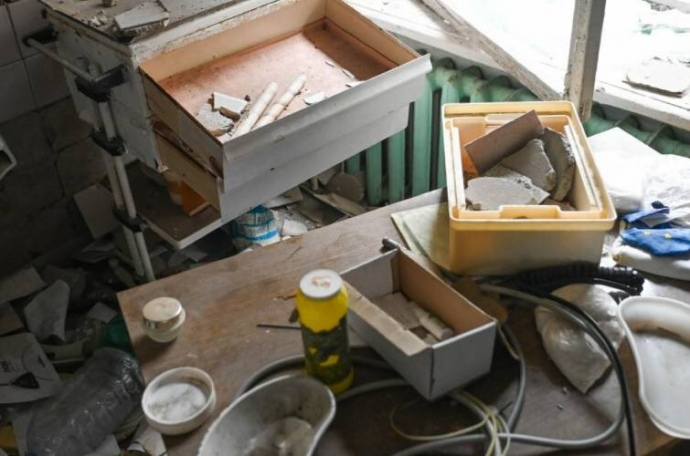Ukrainians describe healthcare under occupation: we asked the Russians for diabetes medication and were given gauze and bandages
Until the Ukrainian military liberated Kherson on 11 November, there were restrictions on movement in the then Russian-occupied city and oblast. People in need of medical help were not allowed to leave their streets for months. So says a report by the international humanitarian mission Medecins Sans Frontieres (MSF, Doctors Without Borders), which provides healthcare to war victims.
A 65-year-old woman who lived in the village of Borozenske in Kherson Oblast told medics that the local dispensary had been damaged, meaning that she had to take her husband through 12 checkpoints for an emergency consultation.
 Photo: Colin Deltosse
Photo: Colin Deltosse
He slipped from a ladder and injured his leg in May 2022. "We contacted a doctor who used to work at the clinic, but he couldn't help us in any way; he had no medicines or equipment, so he recommended we go to a hospital in Beryslav. That's 50 km away from Borozenske, and we needed to go through 12 Russian checkpoints to get to the hospital," the woman said.
She said accessing healthcare during the occupation was not a priority for people unless it was a matter of life and death.
We have launched English Twitter! Follow us!
MSF's report states that many patients had to turn to the occupying authorities for help and medicine - not only in Kherson Oblast, but also in other occupied oblasts of Ukraine.
 Photo: Colin Deltosse
Photo: Colin Deltosse
A doctor from Mykolaiv Oblast said that when Russian troops entered the city, there were only a few doctors and nurses left in the medical facility. There was no surgeon in the hospital, yet people with shrapnel wounds were arriving every day.
According to the doctor, when medical supplies ran out, they started reusing them. Most of the people seeking help were elderly and had chronic health conditions, so there was a shortage of medication for patients with diabetes and high blood pressure. Requests for these medicines were therefore put in to the occupying authorities, but they were unable to provide everything that was needed to help the people they came to "liberate" to survive.
"Once the Russians said to us, 'Write us a list of medicines and we'll give you everything.' There were 86 items on the list, and we were only given 16 of them: bandages, gauze, oilcloth, cannulas, syringes, and a few medicines such as painkillers and anti-inflammatories. I asked them, 'How am I supposed to treat, say, hypertension or diabetes?'" the doctor from Mykolaiv Oblast recalls.
 Photo: Colin Deltosse
Photo: Colin Deltosse
Some people were refused help altogether. Doctors who had previously lived in the territories occupied by the Russian Federation told MSF about the intimidation, detention, violence and ill-treatment they experienced from the occupiers.
For example, in Mykolaiv Oblast, invaders came to a doctor's home to arrest him. He was taken to the "administrative department", where he was interrogated for two hours. The invaders demanded that the hospital staff cooperate with them.
 Photo: Colin Deltosse
Photo: Colin Deltosse
"They beat me.
They ordered me to stop speaking Ukrainian. They finally let me go, but a week later the soldiers returned, this time to the hospital. They handcuffed me in front of all the hospital staff.
They forced me into a car and took me to the basement of my house, where they beat me again," the doctor said. Between 15 November 2022 and 19 February 2023, MSF conducted about 11,000 medical consultations in cities and villages of Donetsk and Kherson Oblasts that had previously been occupied by Russia. The organisation also interviewed 48 patients and medical workers between November 2022 and January 2023.
Journalists fight on their own frontline. Support Ukrainska Pravda or become our patron!